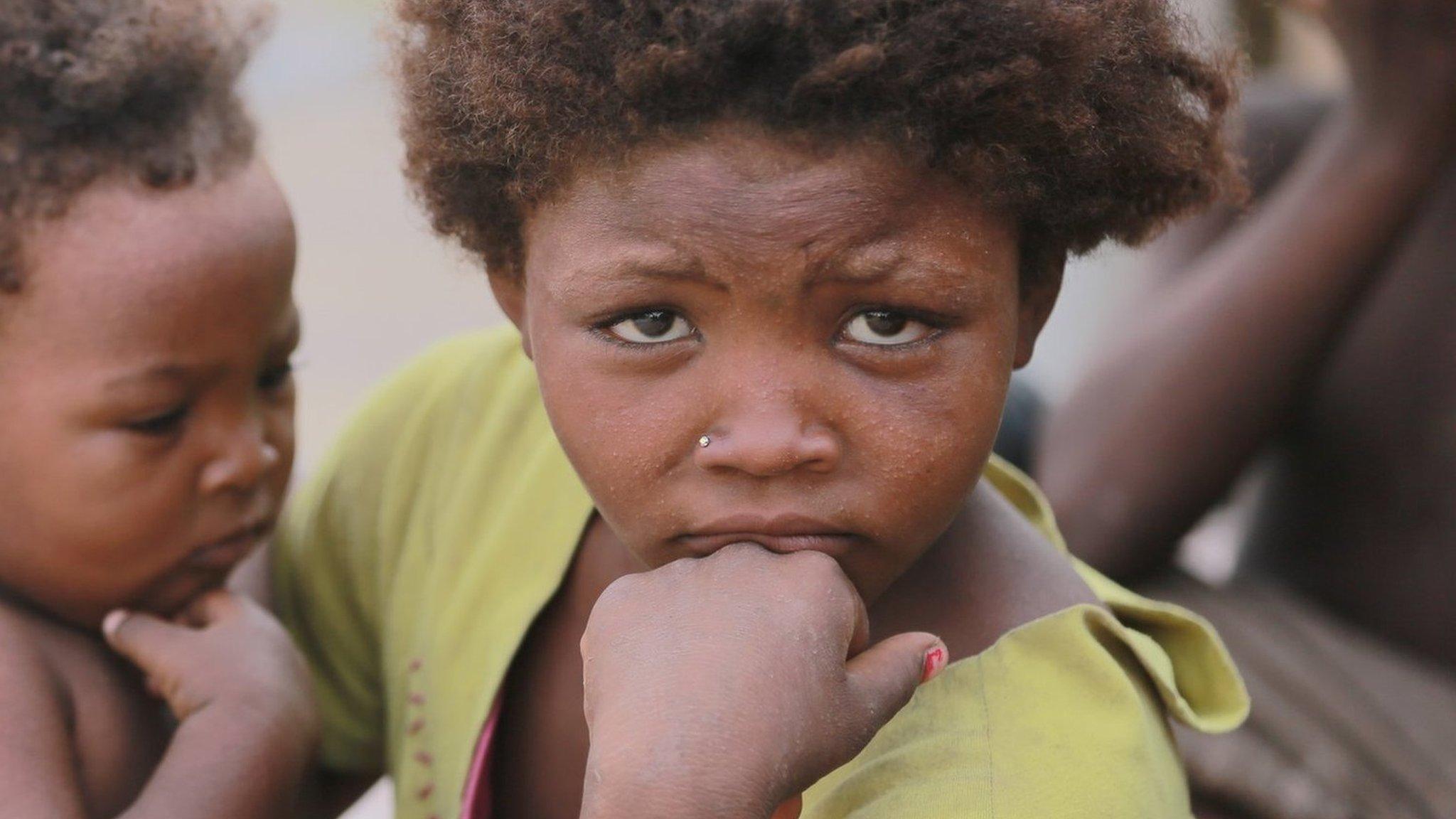Yemen war: Fighting breaks out among allied rebels
- Published
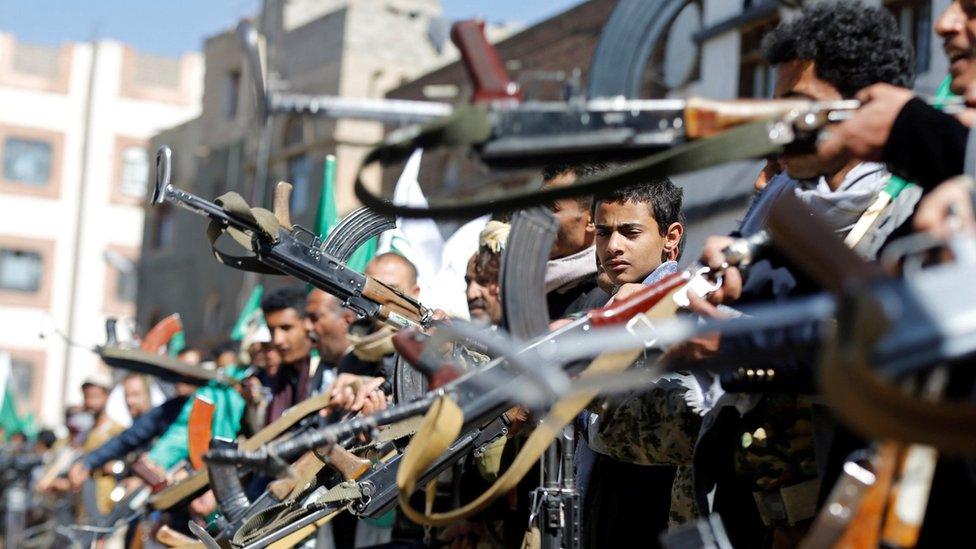
Houthi supporters marked the birthday of the Prophet Mohammed in Sanaa on Thursday
There have been deadly clashes between Yemen's allied Houthi rebels and supporters of ex-president Ali Abdullah Saleh, as tensions between them grow.
Mr Saleh's General People's Congress (GPC) party said four people were killed in fighting at the main mosque in the capital, Sanaa, on Wednesday.
It accused the Houthis of undermining their partnership.
The once bitter enemies are fighting a war against forces loyal to the current President, Abdrabbuh Mansour Hadi.
More than 8,670 people have been killed and 49,960 injured since a Saudi-led coalition backing Mr Hadi intervened in the conflict in 2015, according to the UN.
The conflict and a blockade by the coalition has also left 20.7 million people in need of humanitarian aid, created the world's largest food security emergency, and led to a cholera outbreak that is thought to have killed 2,211 people since April.
Wednesday night's clashes in Sanaa took place around the Saleh Mosque, which is Yemen's largest and is named after the country's former authoritarian leader.
The GPC said Houthi fighters had tried to occupy part of the complex ahead of a rally nearby on Thursday to celebrate the Prophet Muhammad's birthday.
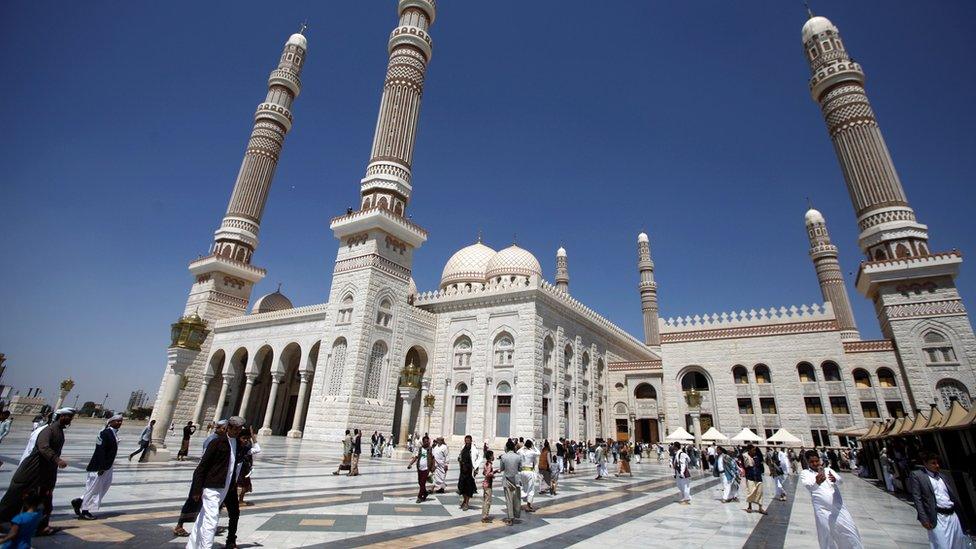
The Saleh Mosque, located in the centre of the capital, is the largest in Yemen
The fighters "broke into the Saleh Mosque, fired RPGs and grenades inside the mosque and put its regular guards under siege", it alleged.
The rebel-run Saba news agency cited a source at the Houthi-controlled interior ministry as saying its security personnel had sought access to the mosque to ensure the safety of those attending Thursday's rally.
After they were refused entry, the security personnel came under fire from "armed elements" inside without warning, forcing them to respond, the source added.
Across Yemen three million people have had to flee their homes
The source said a number of security personnel were wounded, but medical officials at two hospitals told AFP news agency that nine Houthi fighters were killed.
On Saturday, Houthi leader Abdul Malik al-Houthi appeared to accuse Mr Saleh's supporters of failing to "understand the concept of alliance and partnership". It came after the GPC referred to Houthi fighters as "cartoonish mercenary things".
The two sides also clashed in August, after a GPC rally in Sanaa. The day after the event, a GPC politician and three Houthi security personnel died in a gun battle at a checkpoint. Clashes erupted the next day near the home of one of Mr Saleh's sons.
Theresa May says she is "concerned" about the Yemen humanitarian crisis
The Houthis, who champion Yemen's Zaidi Shia minority, fought a series of rebellions against Mr Saleh between 2004 and 2010. It also supported an uprising in 2011 that forced Mr Saleh to hand over power to Mr Hadi, then his deputy.
Mr Saleh's supporters formed a surprise alliance with the Houthis in 2014, when they seized Sanaa amid widespread disillusionment at the political transition and Mr Hadi's failure to tackle corruption, unemployment and food insecurity.
In early 2015, the allies ousted Mr Hadi, forcing the president to flee initially to the second city of Aden and then to Saudi Arabia. The Saudi-led coalition responded by launching a military campaign to restore Mr Hadi's government.

- Published9 November 2017
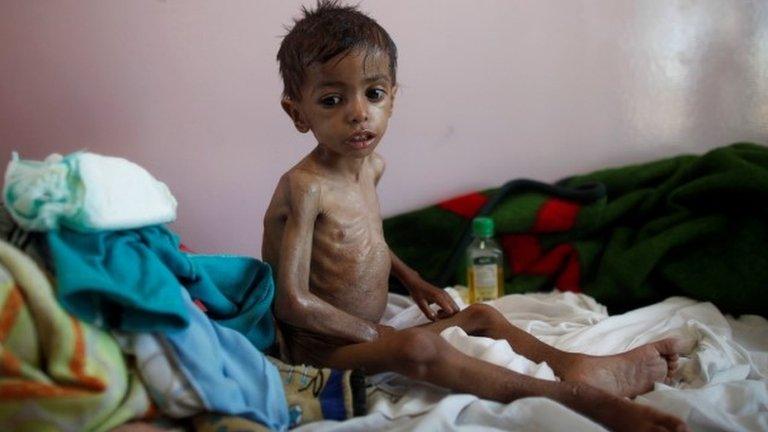
- Published7 November 2017
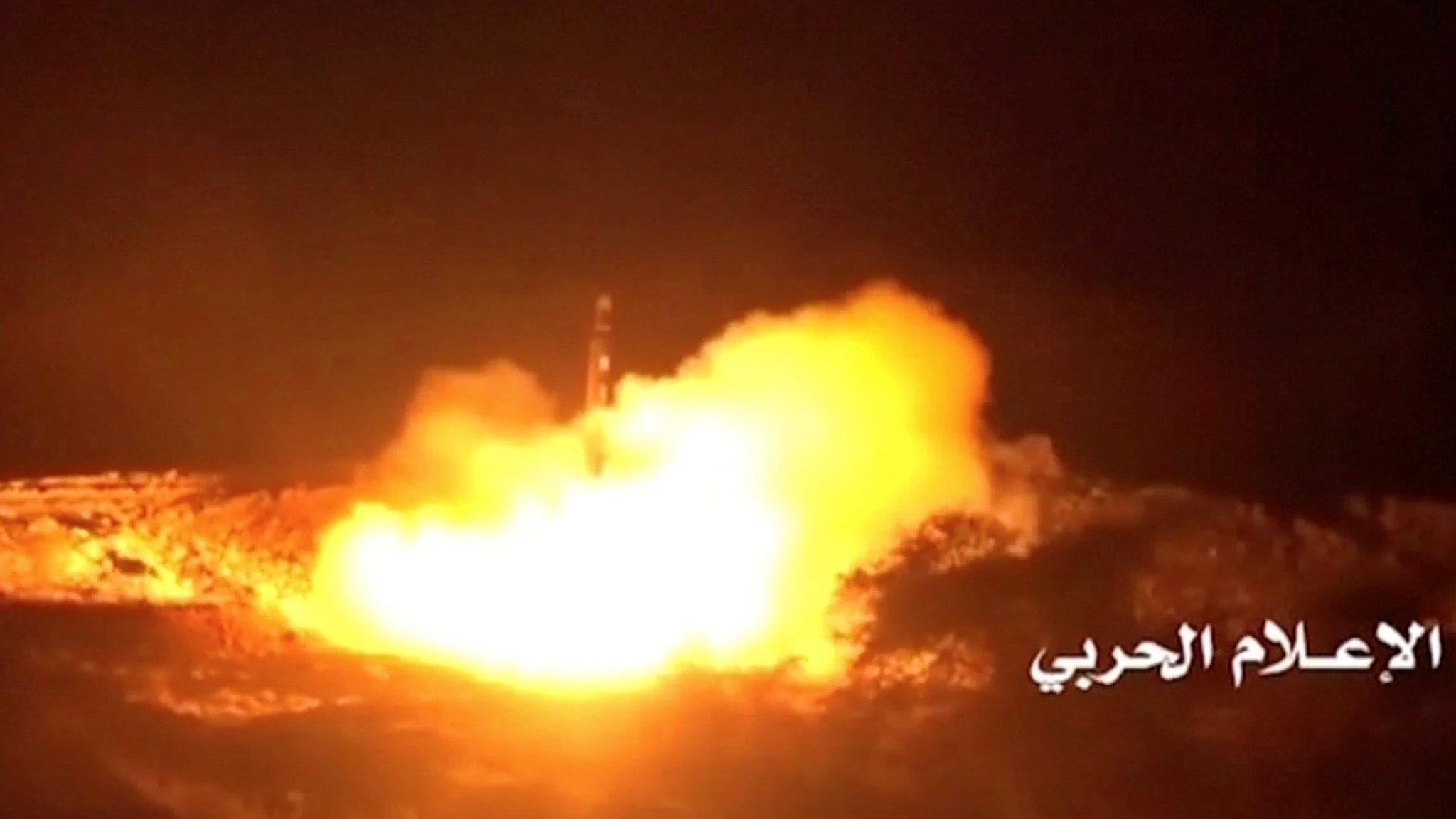
- Published6 November 2017
- Published23 August 2017
